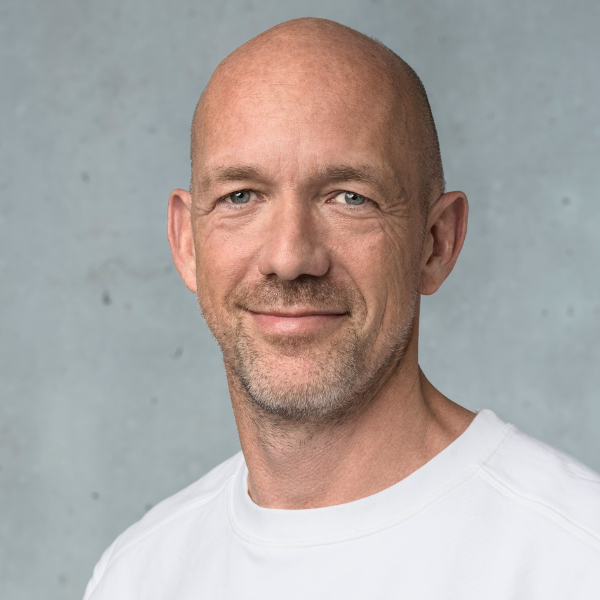
Timbo Drayson seemed destined for Silicon Valley by way of the United Kingdom. He studied engineering at the University of Oxford before starting at Google, and then spent the next six years working in marketing and product management in London and San Francisco.
He built the YouTube app for mobile phones, marketed the first Android phone and has seven U.S. patents to his name. When he was offered a “dream job” at YouTube several years ago, he packed his bags and set his sights on San Francisco. But before he did, he took three months off to travel and reconnect with what matters in life — and that’s exactly what happened.
“I did a tech tour of Sub-Saharan Africa and was inspired by all the startups I met that were impacting the world through their profitable businesses,” Drayson says in the 2017 book Digital Kenya: An Entrepreneurial Revolution in the Making. “Realizing it was now or never, I left Google in mid-2013 to move to Kenya to have a better chance at solving a bigger problem.”
His Nairobi-based startup, OkHi, is a mobile app that allows users to locate someone who doesn’t have a street address. Kenya lacks a physical address system, and the number of people globally who don’t have an address is estimated at four billion.
“We want to create a solution with the people that we’re working with so that we can solve a greater challenge.”
Camila Vega
“An important learning from my previous startup was that it is not the idea that counts, it is the underlying problem that you need to focus on,” Drayson went on to say in the book.
He, like other entrepreneurs seeking to make the biggest impact possible with their skills and passion, are gravitating to parts of the world where the scale and gravity of people’s needs stir their heart and feed their soul. In Africa, Zimbabwe, Kenya, Ghana, Nigeria, Tanzania, Ethiopia and South Africa are leading the continent’s entrepreneurial fervor, and a rising middle class – as well as a tech-savvy and energized younger generation – create an opportunity-rich region for adventurous founders.
The key, says individuals who have studied Africa’s business environment extensively, is to go and observe first, understand the context, and then come up with products that meet real needs on the ground.
Stanford Assistant Professor Chuck Eesley, who studies institutional influences on entrepreneurship in the university’s Department of Management Science & Engineering, agrees: “Research has shown the difficulty entrepreneurs often have in an environment that is unfamiliar to them, either because they left to go abroad and the institutions have changed, or because they are accustomed to a developed economy context.”
“Performance and survival are likely to be lower, if the founding team is unfamiliar with the institutions, culture and consumer preferences of the target market when entering emerging economy markets,” Eesley explains.
Stretch and prove yourself
Entrepreneurs are also leveraging the interconnectedness of the digital age by concentrating their efforts in Africa and other less developed nations while remaining stateside — maximizing their impact without distancing themselves from their support network of friends, family, peers and investors.
Take Noah Freedman and Camila Vega, co-founders of Nucleos, which offers a hardware-software solution used by schools in Africa and India that lets students access web apps where there’s little to no Internet connectivity. Nucleos is based in Santa Cruz, Calif., and they travel as needed.
The co-founders previously worked in academia, for programs striving to increase access to online-education resources. Freedman was at Stanford’s School of Education, helping deliver learning games through micro-servers in 22 countries around the world. That’s where he experienced students’ enthusiasm first hand and came to understand the size of the market and opportunity for a business.
Vega had been with an online-education program for the University of California, traveling to schools around the state and working with disadvantaged youth. Like Freedman, that’s how she discovered her passion for increasing access to information for those who need it most. When the two met in 2016, Freedman was already working on his startup and convinced Vega to join in his journey.
They traveled to 10 countries learning from teachers, organizations and educational nonprofits to understand where they could fit in, and how they could provide the best value. In other words, they took the command that mentors often encourage first-time founders who are in search of an entrepreneurial opportunity — to get out of the building — to another level altogether: They got out of the country.
The key is to go and observe first, understand the context, and then come up with products that meet real needs on the ground.
“This is the most exciting thing I’ve ever done in my life,” Vega says. “The continual challenges push me to learn more about the world and myself, and to see how I can not only create something that will make the world a better place, but also how I can begin to challenge myself to be better.”
When Leila Janah volunteered to teach English in Ghana after high school, the job transported her from the familiar surroundings of Southern California and opened her eyes to the everyday reality of villagers living in poverty who yearned for a better life but lacked the job opportunities.
The experience ignited a passion that would fuel Janah’s career going forward: She returned to Africa throughout college to conduct field work, earned a degree in African development from Harvard and later came to Stanford, where she conceived of a business intended to reverse poverty by allowing those villagers to finally earn a dignified wage by doing digital work such as image tagging for autonomous-vehicle systems.
That was 10 years ago, and now Janah’s social enterprise, Samasource, does complex data projects for many of Silicon Valley’s top tech companies and corporations in other industries, including Marriott, Walmart and Getty Images. Since 2008, over 10,000 workers in data centers in Kenya, Uganda and India have had the chance to earn higher wages and learn valuable skills to help pull their families out of poverty.
It’s the same kind of work that’s being done through Amazon’s Mechanical Turk, except that it’s not going to a gig worker supplementing his income to make rent in some high-cost city. It’s going to villagers who, according to Samasource’s own longitudinal studies, are doubling and tripling their income in the years ahead, allowing them to eat healthier, get health care and upgrade their skills.
Even after they’ve left Samasource, those villagers report buying fruits and vegetables, moving into safe housing, and because they have digital jobs with access to the Internet, they’re Googling and finding educational resources like Khan Academy online and improving their skills.
Samasource is upskilling low-income job seekers at home as well, through its U.S. training arm Samaschool.
Speaking recently to students at Stanford, Janah implored the aspiring entrepreneurs in the audience to launch startups that don’t just make “an incremental change in the lives of rich people.” In a moment of raw emotion, Janah expressed her frustration as someone who regularly sees millions of dollars invested in clever first-world innovations while the talent of people with far less is wasted because we’re simply not aware of the difference we can make in their world.
“If you are an entrepreneur and just starting out, you have a golden opportunity to think deeply about the influence you want to have on the world,” Janah says in the introduction of her book, Give Work: Reversing Poverty One Job at a Time.
Forget what you think
The images of starving Africans shown on TV to inspire Americans to donate to Save the Children and other charity organizations are hard to forget. They’ve given many Westerners a skewed view of the region or have created blind spots that keep us from seeing the reality that is, in fact, giving rise to startups like OkHi, Nucleos, Samasource and many others.
Some African nations — though coming from farther behind — are now modernizing at a faster pace than have other parts of the world. Kenya, Tanzania and South Africa are recognized as emerging markets that have leapfrogged in terms of technology adoption, with the introduction of widespread Internet use occurring on smartphones, skipping the desktop-PC era altogether. Mobile banking has also flourished in those countries, bypassing the need for ATM and brick-and-mortar branches.
In the same way that the digital revolution has allowed anyone with Internet access to do online work, regardless of where they or the company is based, a recently connected continent like Africa becomes a new market for the entrepreneur. And Africa, in particular, has become a magnet for those seeking to make their mark on the world stage.
“For a lot of individuals who I’ve talked to who have lived and worked in, and honed, their professional skills in Silicon Valley, a reason to go to Africa is that the market isn’t as saturated and regulated,” says Tim Weiss, co-editor of Digital Kenya. “So there’s more space for innovation that can have a real impact on people’s lives.”
Weiss, currently a postdoctoral scholar at the Center for Work, Technology and Organizations at Stanford University, researches how tech entrepreneurship occurs in areas that lack the resources businesses need to scale, with a particular focus on Africa. He has spent several years in Kenya, Ethiopia and other countries working with international nongovernmental organizations in both humanitarian and development aid.
“We can then learn from other innovative spaces around the world, copy what is necessary, build what infrastructure we need, and innovate for Africa first.”
Jimmy Gitonga
He points to the explosion in recent years of African tech training programs like coding camps, business-process-outsourcing centers like Samasource’s, and most importantly, the laying of fiber-optic cables in 2009 in Kenya that have led to widespread computer use in universities and offices throughout the region. The result has been rapid and increasingly sophisticated digital literacy in the region, which Weiss says native and foreign-born entrepreneurs are capitalizing on in growing numbers.
However, he notes that the main reason why entrepreneurs should be excited about a place like Africa comes back to impact and meaning: “There, individuals perceive a higher calling in what they’re building, and that this could have a very substantial impact on infrastructure development — infrastructure that connects the physical and digital, like delivering goods to rural areas using the technology on hand.”
For instance, Nucleos has been in contact with the American Refugee Committee to bring its micro-servers to the massive encampments in Uganda. The country is geographically central in Africa and hosts over a million refugees who have flooded in from surrounding nations embroiled in conflict or other humanitarian crises.
The children there cannot go to school, so aid workers are discussing the idea of setting up makeshift libraries in each of the refugee camps where anyone in the community could use a smartphone to connect to educational content stored on the Nucleos servers.
“It’s challenging, but the opportunity lies in creating a product that people find value in,” Vega says. “We want to create a solution with the people that we’re working with so that we can solve a greater challenge.”
Indeed, Weiss says the developing world is the ideal place to hone the skills entrepreneurs need most. “An entrepreneur is not going to come in with all the answers, but really has to listen and learn,” he explains. “There’s really not much information out there, so you have to roll up your sleeves and get to work. And I think that is something that entrepreneurs, by nature, are drawn to.”
Be part of something different
The region isn’t without its challenges. There’s government corruption and underdeveloped infrastructure. Vega talks about the lack of direct, real-time feedback from customers due to the physical distance between Silicon Valley and Africa. In addition, securing local startup funding can be difficult because venture capital is still in its infancy there.
But enough innovation is occurring that the region has earned the moniker “Silicon Savannah.”
Jimmy Gitonga isn’t keen on the nickname. A Kenyan who has been at the center of the country’s tech transformation over the years, Gitonga got into electronics after studying physics and applied mathematics at the University of Nairobi. He later learned graphic and web design, Flash and motion graphics, and eventually helped found a design house that worked on the innovation and hacker space iHub.
Occupying over 23,000 square feet in Nairobi, iHub supports tech entrepreneurs and aims to “create an environment of trust and experimentation that will be focused on the idiosyncrasies of our local ecosystem in Kenya.” Gitonga holds a similar view, that context is important — and that Africans shouldn’t accept foreign notions straightaway as they have done traditionally.
Steeped in the lore of tech innovation, Gitonga knows that Silicon Valley gets its name from the material used to produce semiconductors decades ago. But nowhere in Africa is silicon used as the raw material fueling the local tech boom, he points out. He goes on to say that “savannah” isn’t even an African word.
Rather, the region’s biggest innovations are digitally native. M-Pesa, a mobile-phone-based money transfer service that started in Kenya and Tanzania in 2007, has since spread into the Middle East, India and parts of eastern Europe — gaining recognition as the most successful mobile-phone financial service in the developing world and an indicator of how a cashless world might operate.
“If you are an entrepreneur and just starting out, you have a golden opportunity to think deeply about the influence you want to have on the world.”
Leila Janah
Another tech breakthrough out of Kenya is the crisis crowdsourcing platform Ushahidi. Originally created to monitor post-election violence in the country in 2007 and 2008, its founders collected eye witness reports of the chaos in the form of text and images and uploaded them to Google Maps. Since then, its powerful information-gathering and interactive-mapping capabilities have been used in over 160 countries for events ranging from Barack Obama’s 2012 campaign for re-election to the ongoing violence in the Syrian civil war.
For these reasons, Gitonga prefers the name “Digital Nyika” — stemming from a Swahili word for “grassland” — over Silicon Valley. This phrasing “is an exercise that forces us to look at the African innovation space without biases,” he explains. “We can then learn from other innovative spaces around the world, copy what is necessary, build what infrastructure we need, and innovate for Africa first.”
So, while works like Marvel’s blockbuster “Black Panther” have brought the concept of Afrofuturism back into pop culture, actual tech ecosystems have been growing in Africa — catalyzed by entrepreneurs seeking to make a real difference in people’s lives.







